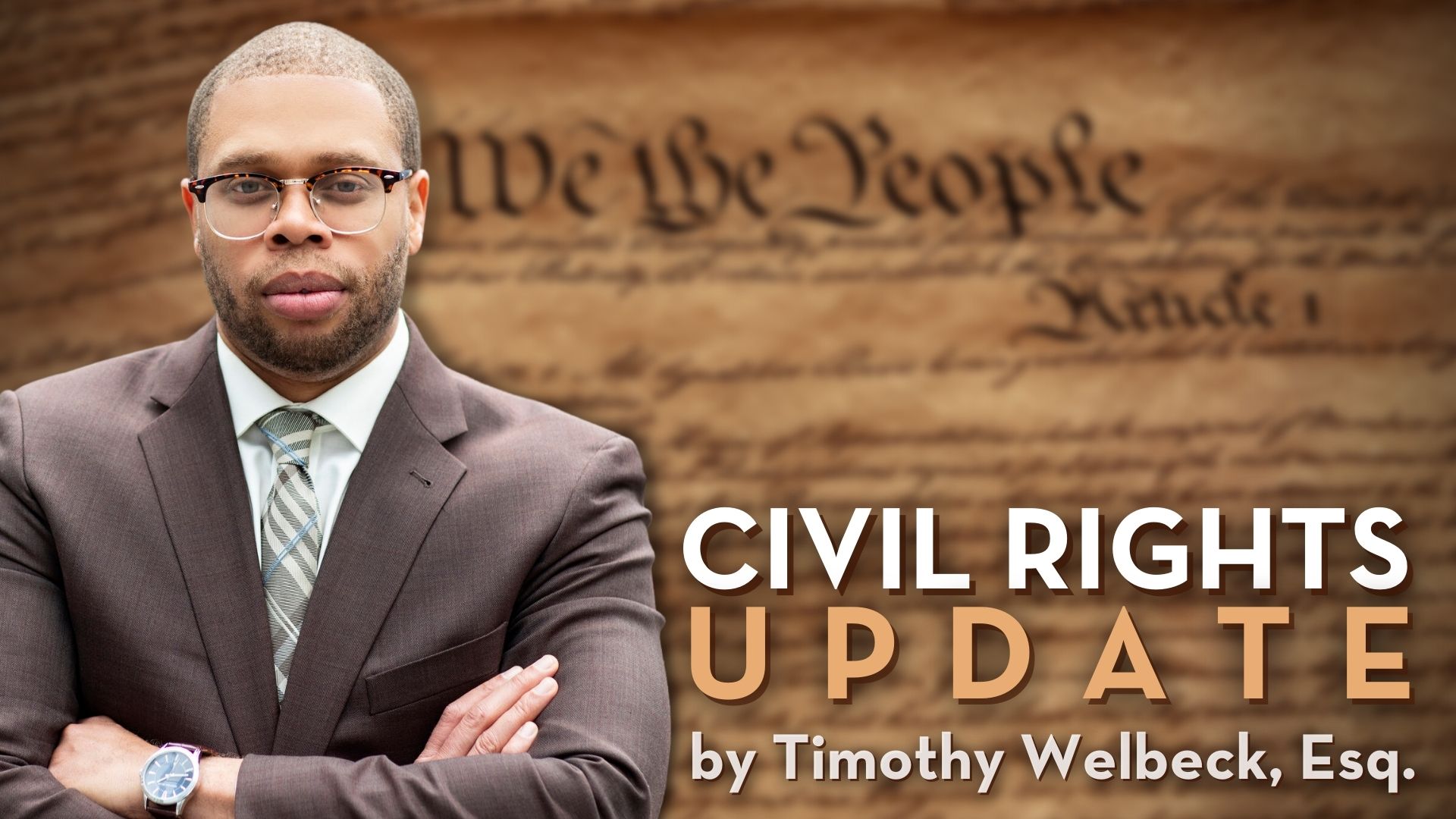CIVIL RIGHTS UPDATE
by Timothy Welbeck, Esq.
Employment discrimination is one of the persistent ways bigotry and xenophobia impacts everyday people. Roughly 40% of the people seeking legal assistant from our office call to complain of some form of harassment or discrimination in the workplace. To that end, I am presently representing three different people in various stages of legal action against their current or former employer based on their allegations of religious discrimination and/or harassment. US law defines employment discrimination as a form of discrimination based on race, gender, religion, national origin, physical or mental disability, age, sexual orientation, and/or gender identity by employers. When it occurs, employment discrimination is a clear violation of US law.
The First Amendment of the United States Constitution guarantees the right of American citizens to freely accept religious beliefs and engage in any corresponding religious actions and/or rituals made in concert with those beliefs. Additionally, federal law expressly prohibits discrimination on the basis of race, color, religion, sex, or national origin (Title VII of the Civil Rights Act of 1964). Moreover, the United States Supreme Court has routinely affirmed the right to freely exercise one’s religion, widely held this right applies to state and local governments. For example, the Supreme Court case Cantwell v. Connecticut, 310 U.S. 296 (1940) applies these protections to state and local governments, and more recently affirmed the obligation of private corporations not to infringe upon the religious practice of its employees or prospective employees it its decision in Equal Employment Opportunity Commission v. Abercrombie & Fitch Stores, Inc. (2015). In Equal Employment Opportunity Commission v. Abercrombie & Fitch Stores, Inc., the court held in relevant part:
An employer who acts with the motive of avoiding accommodation may violate Title VII even if he has no more than an unsubstantiated suspicion that accommodation would be needed… [T]o accommodate a religious practice is straightforward: An employer may not make an applicant’s religious practice confirmed or otherwise, a factor in employment decisions.
Many will find reporting discrimination in the workplace difficult, but little will change unless employees take deliberate action. It is as the late novelist and activist James Baldwin once stated, “Not everything that is faced can be changed, but nothing can be changed until it is faced.” Consequently, in the unfortunate event you believe you have experienced employment or harassment at work because of your race, gender, religion, national origin, physical or mental disability, age, sexual orientation, and/or gender identity, you should document and report the discriminatory behavior.
When you document discriminatory behavior, ensure that your notes include, dates, times, location, names of individuals involved, and detailed descriptions of the discriminatory events. If you have any physical evidence (i.e. photographs, documents, etc.) that can support your claims, make sure you keep copies of it. To the extent to which you can, try to remove your emotions from these descriptions, aside from descriptions of how the discriminatory behavior has a negative impact on you. Also, if you have any other witnesses to the discriminatory behavior, request statements from these potential witnesses.
Additionally, you should report the discrimination to your company’s management, particularly your direct supervisor (unless the direct supervisor is the offending party). Request reasonable alternatives and solutions that will allow you to complete your duties while also ending the discriminatory behavior. If the manager does not respond adequately, you should report the offenses to Human Resources. Most companies have a Human Resources division within its managerial structure. This division is responsible for training, recruiting, and placing employees. Human Resources also typically oversee disputes in the office and have protocols for inappropriate office behavior. Once Human Resources receive a complaint of discrimination, the law requires them to conduct a timely investigation. To the extent possible, you should make each of these reports (to your supervisor, to Human Resources, etc.) in writing, so you may have further documentation to substantiate your claims. If you still do not find a satisfactory resolution to your issues, you should seek legal counsel and/or the help of the Equal Employment Opportunity Commission (EEOC).





